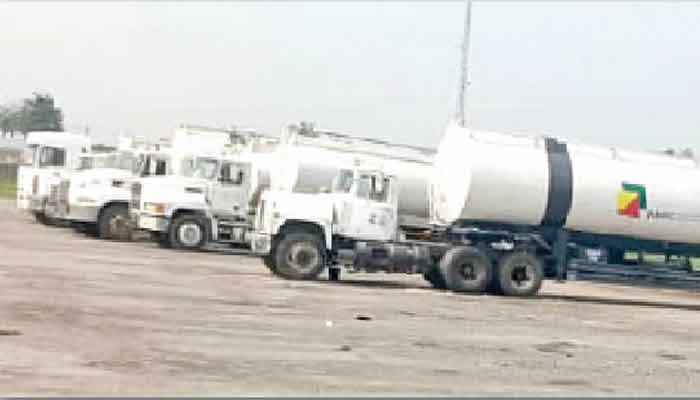FG eyes N796bn annually from 5% petrol surcharge
Consumers Push Back as FG Introduces 5% Fuel Surcharge, Projected to Generate N796bn Annually
Beginning January 1, 2026, Nigerians may face further fuel price hikes as the Federal Government moves to implement a five per cent surcharge on locally produced and imported petroleum products, a key provision of the newly signed Nigeria Tax Administration Act.
An analysis by The PUNCH reveals that the surcharge alone could net the government N796 billion annually from petrol, based on 2024 consumption and production data. The surcharge, part of broader fiscal reforms under President Bola Ahmed Tinubu’s administration, was signed into law on June 26, 2025, alongside three other tax reform bills: the Joint Revenue Board (Establishment) Law, Nigeria Revenue Service (Establishment) Act, and the Nigeria Tax Administration Act.
Consumers Decry Additional Burden
Despite assurances of long-term benefits, the announcement has been met with public outcry, especially given the removal of the fuel subsidy in 2023 that already led to soaring fuel prices. Consumers, oil marketers, transport workers, civil society groups, and human rights advocates argue that the surcharge reflects insensitivity to worsening economic conditions.
“The powers that be in this country are taking us for a ride. They think we won’t react just because we were quiet the last time they increased fuel. Now they want to add another cost on top of the already expensive pump price. This must be reversed,” said Akintade Abiodun, National Chairman of the Joint Drivers Welfare Association.
Surcharge Mechanics and Projected Revenue
The five per cent surcharge is to be levied on all “chargeable fossil fuel products” produced or supplied in Nigeria. These include petrol, diesel, kerosene, aviation fuel, and other petroleum derivatives, but excludes:
-
Household kerosene
-
Cooking gas (LPG)
-
Compressed Natural Gas (CNG)
-
Renewable energy products (e.g., solar, wind, hydro, biogas)
Under the Act, the Federal Inland Revenue Service (FIRS)—which will be renamed the Nigeria Revenue Service (NRS) by 2026—is tasked with administering and collecting the surcharge monthly. It will also issue regulatory guidelines for effective implementation.
“A surcharge is imposed at five per cent on chargeable fossil fuel products… and shall be collected at the time a chargeable transaction occurs—supply, sale, or payment—whichever occurs first,” the law states.
Based on 2024 figures provided by the Nigerian Midstream and Downstream Petroleum Regulatory Authority (NMDPRA), Nigerians consumed 18.75 billion litres of petrol, translating to N15.93 trillion at an average price of N850/litre. A five per cent surcharge on this amount equals N796 billion annually—excluding diesel and aviation fuel revenues.
Oil Marketers and IPMAN Raise Concerns
Oil marketers have cautioned that the surcharge may further increase the pump price of refined petroleum products, as the cost would eventually be passed on to consumers.
“Any additional charge on the cost of importation or refining of petroleum products will, by extension, reflect in the final retail price,” said Chief Chinedu Ukadike, National Publicity Secretary of the Independent Petroleum Marketers Association of Nigeria (IPMAN).
“Marketers operate on thin margins and cannot absorb such levies without a ripple effect.”
Ukadike confirmed that although the surcharge will be built into pre-pricing structures by refineries, the impact will still be transferred to end users.
Refiners and Advocacy Groups React
The Association of Nigerian Refineries Petroleum Marketers also voiced concern, warning of severe operational and economic consequences. During a recent press briefing, Usman Ali, Chairman of the Board of Trustees, urged the government to balance revenue generation with consumer protection.
While acknowledging the past failures of the fuel subsidy regime—which was marred by corruption and inefficiencies—the association stressed the need for robust regulatory safeguards to avoid a resurgence of malpractice in the downstream sector.
“There must be digital tracking systems, transparent procurement procedures, and strong enforcement mechanisms,” Ali emphasized.
“Improving Nigeria’s road infrastructure is essential, but this charge must be tied to visible and timely rehabilitation efforts.”
Human Rights Groups Slam “Anti-People” Policy
Human rights advocates have also condemned the policy. Jackson Omenazu, Chancellor of the International Society for Social Justice and Human Rights, described the surcharge as anti-poor and potentially explosive.
“How can lawmakers sit in the comfort of their offices, after increasing their own allowances, to approve policies that will send poor Nigerians to early graves?” Omenazu questioned.
“This leadership approach is dangerous. The public’s patience is wearing thin.”
Timeline for Implementation
Although the policy is legally in place, the implementation date is pending, awaiting approval by the Minister of Finance and Coordinating Minister of the Economy, Wale Edun.
“The Minister may, by an Order issued in the Official Gazette, indicate the effective date of commencement,” the Act stipulates.
Once implemented, the policy is expected to boost non-oil revenues and promote fiscal sustainability, especially as the nation grapples with rising debt, limited foreign reserves, and declining crude oil revenues.














Post Comment